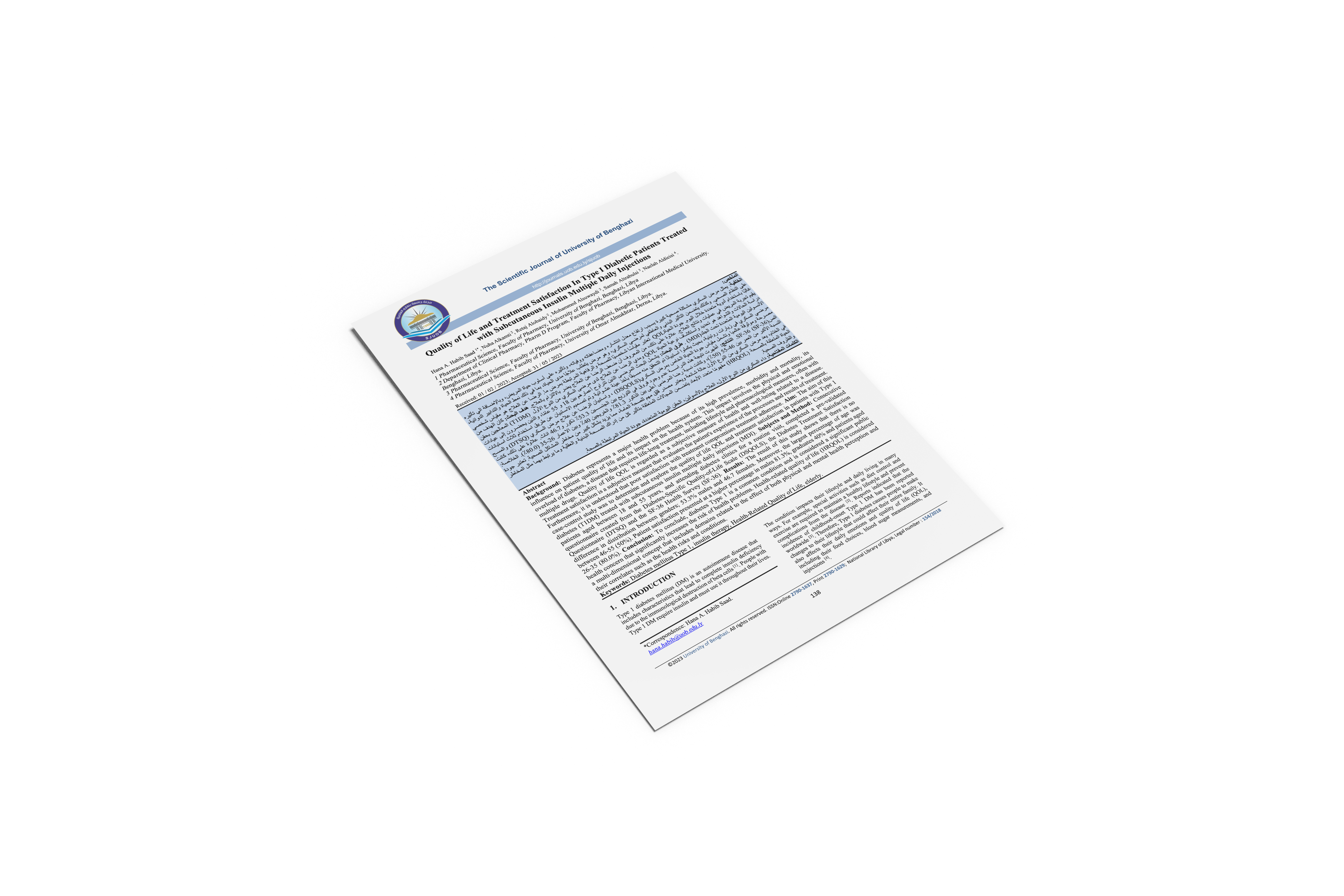Quality of Life and Treatment Satisfaction In Type I Diabetic Patients Treated with Subcutaneous Insulin Multiple Daily Injections
DOI:
https://doi.org/10.37376/sjuob.v36i1.3942Keywords:
Diabetes mellitus Type 1, insulin therapy, Health-Related Quality of Life, elderlyAbstract
Background: Diabetes represents a major health problem because of its high prevalence, morbidity and mortality, its influence on patient quality of life and its impact on the health system. This impact involves the physical and emotional overload of diabetes, a disease that requires life-long treatment, including lifestyle and pharmacological measures, often with multiple drugs. Quality of life QOL is regarded as a subjective measure of health and well-being related to a disease. Treatment satisfaction is a subjective measure that evaluates the patient's experience of the processes and results of treatment. Furthermore, it is understood that poor satisfaction with treatment compromises treatment adherence. Aim: The aim of this case-control study was to determine and explore the quality of life QOL and treatment satisfaction in patients with Type 1 diabetes (T1DM) treated with subcutaneous insulin multiple daily injections (MDI). Subjects and Method: Consecutive patients aged between 18 and 55 years, and attending diabetes clinics for a routine visit, completed a pre-validated questionnaire created from the Diabetes-Specific Quality-of-Life Scale (DSQOLS), the Diabetes Treatment Satisfaction Questionnaire (DTSQ) and the SF-36 Health Survey (SF-36). Results: The result of this study shows that there is no difference in distribution between genders; 53.3% males and 46.7 females. Moreover, the largest percentage of age was between 46-55 (50%). Patient satisfaction presented at a higher percentage in males 81.3%, graduates 40% and patients aged 26-35 (80.0%). Conclusion: To conclude, diabetes Type 1 is a common condition and is considered a significant public health concern that significantly increases the risk of health problems. Health-related quality of life (HRQOL) is considered a multi-dimensional concept that includes domains related to the effect of both physical and mental health perception and their correlates such as the health risks and conditions.
Downloads

Downloads
Published
How to Cite
Issue
Section
License
Copyright (c) 2023 The Scientific Journal of University of Benghazi

This work is licensed under a Creative Commons Attribution-NonCommercial-NoDerivatives 4.0 International License.


















